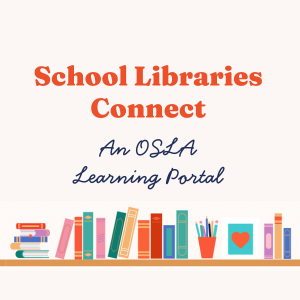Last week felt like "Meeting Week" - I had at least one meeting every day last week, (coordinating the translators we hire for parent-teacher interviews on Monday; CSLJ editorial board meeting on Tuesday, staff meeting on Wednesday, admin team SIP meeting all morning on Thursday, and a UNESCO MIL Alliance regional chapter meeting on Friday). However, I don't want to focus on the meetings for my reflection. I'd rather examine how I've been working to invigorate social studies lessons.
No offense to any social studies teachers out there, but the feedback I hear from both students and teachers is that social studies isn't the most thrilling subject. This is unfortunate because the subject has such potential to be fascinating. I try hard to infuse social studies teaching with my own personal philosophy of education (part of which is this: learning is fundamental - FUN before "da mental").
Grade 6 Social Studies - Getting Active by Crossing the Burble Swamp
As part of our school's reorganization, I took on a Grade 6 social studies class as the primary teacher. Currently, our unit is on Canadian Communities, Past and Present. I decided to resurrect a favourite activity of mine that I co-taught last year with Nelani Kokularajan's Grade 6s and have done a few other times in the past: Crossing the Burble Swamp. I learned about this challenge many years ago as part of my Drama AQ. It's a very kinesthetic way to teach about push and pull factors related to migration. Students are crowded into a small area of the space and invited to go elsewhere, with a spacious and comfortable option in sight, but a version of "the floor is lava" is in effect. The papers that can get them across are scarce. How do they deal with it?
The students were very engaged, and the discussion was rich and meaningful. I'm also improving at facilitating this task in a way that prioritizes safety and making connections. When they had to write their reflections during the following class, they missed some of the connections we had mentioned before. I marked their work this weekend and will give them a second chance to add to their answers.
Grade 3-4 Social Studies - Explicit Instruction on Test-Taking
I'm also involved in co-teaching some social studies lessons with the Grade 3-4s and the Grade 2-3s. The Grade 3-4 teacher was concerned that her students had done poorly on a recent evaluation, so I contributed by filming a "How To Study for a Test" video for them on Google Classroom, and providing a test of my own design to cover the same content but with a different twist.
A side note: I tried to use Generative AI in an ethical way by having it generate a blank map of Ontario with its three main landform regions for students to label. I don't know if it's just that my prompts were ineffective, but the results that two of the tools we are permitted to use in my board were abysmal. I actually used one of these defective images as a bonus question for the test, inviting students to explain to me what the problem was with the visual.
Grade 2-3 Social Studies - Centering Ourselves
The Grade 2-3 lesson began on a dynamic note from the start because of the way the homeroom teacher, Kerri Commisso, approached it. The question was simple: "Where are we?" and it proved to be an excellent diagnostic tool to see how much students knew about various regions and their relation to each other. For each spot, a circle was made so that students could see how a city is part of a province, for example, and that a province is bigger than a city. I wish I grabbed a copy of the final diagram that Mrs. Commisso and the students generated, because it was so meaningful to them.
Other Innovative Ideas for Social Studies Learning
In the past, I've tried to make social studies lessons interesting by doing things such as teacher-in-role, building large scale maps out of fabric, encouraging inquiry projects for the Heritage Fair event that resonate personally with students, and conducting scavenger hunts to reinforce map reading skills.
On Wednesday, November 19, 2025, I will be part of a panel in a series of webinars that OSLA runs called School Libraries Connect. The November session is called "Think Outside the Book: Innovative Program Ideas for Your SLLC". Not only will I mention ideas such as this, I'll talk about how I come up with the ideas. It's free for OSLA members but registration is required. Hope to see you there!










No comments:
Post a Comment